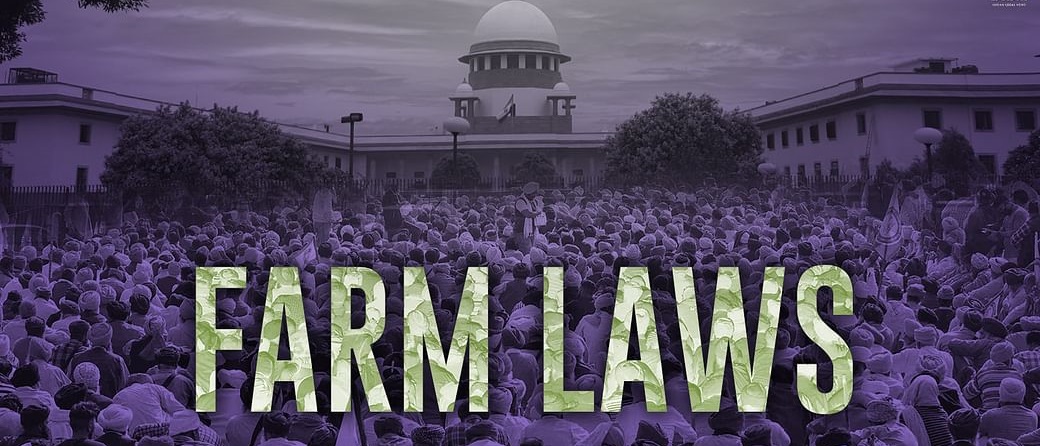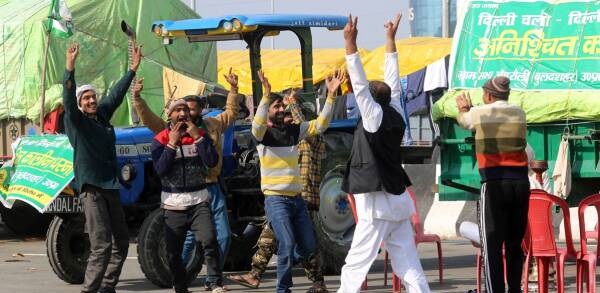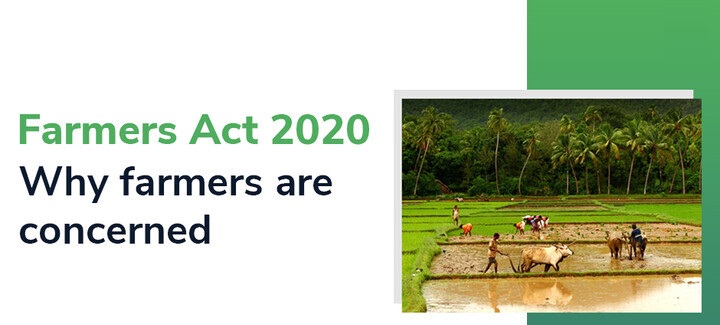
Tuesday, January 12, 2021
Since September 2020, tens of thousands of farmers from different states of India took to the streets, leaving their family hearth, to protest against the ‘Farm Bill’ passed by the present government headed by Prime Minister Narendra Modi backed by the Bhartiya Janata Party (BJP). These reforms, as stated by the protesters have left many farmers in difficult situations. Some are worried that their present existing struggles will take a sharp turn for the worse outcome while others fear that the reforms will only add to the disturbing trend of farmers’ suicide across the country.

As of 12 January 2021, the latest update is that The Supreme Court has put a suspension on the implementation of farm laws until further notice. This ruling came as a result of numerous petitions challenging the validity of the three farm laws.
The bench of SC headed by Chief Justice of India S.A. Bobde and comprising Justices A.S. Bopanna and V. Ramasubramanian, will engage in a meeting with the newly formed committee comprising of experts in this field, to hear the problems and to find a middle ground. When told that the farmers’ union was not willing to come before the committee, the SC bench said that those who are ‘genuinely’ willing to find a solution will surely do so. “This is not politics. There is a difference between politics and judiciary and you will have to cooperate,” said the Chief Justice of SC.
The four-member committee comprises of Bhupinder Singh Mann of the Bharatiya Kisan Union, Anil Ghanwat of Shetkari Sanghatana, Dr Pramod Kumar Joshi and agricultural economist Ashok Gulati.

The Centre and the protesting farmers have had, since the implementation, eight meetings to discuss and negotiate the terms and required altercations but failed to come up with a solution that is agreeable to both the parties. Of the three farm laws passed under the Farm Bill, it is but one that the farmers are mainly protesting about. The three laws in question are:
- Farmers (Empowerment & Protection) Agreement of Price Assurance & Farm Services Act, 2020.
- Farmers Produce Trade & Commerce (Promotion & Facilitation) Act, 2020
- Amendment to Essential Commodities Act, 2020.
The Farmers (Empowerment and Protection) Agreement on Price Assurance and Farm Services Act has to do with providing a regulatory framework for contract cultivation. This specifically concerns agreements entered into by farmers with agri-business firms (processors, large retailers or exporters) ahead of any planting/rearing season for supplying produce of predetermined quality at minimum guaranteed prices.
The Essential Commodities (Amendment) Act is about doing away with the Centre’s powers to impose stockholding limits on foodstuffs, except under “extraordinary conditions”. These could be war, famine, other natural calamities of grave nature and annual retail price rise exceeding 100% in horticultural produce (basically onions and potato) and 50% for non-perishables (cereals, pulses and edible oils).
It is the FPTC Act or the Farmers Produce Trade and Commerce (Promotion & Facilitation) Act (listed 2nd above) that has gained mass momentum and strong opposition from the farmers. It permits sale and purchase of farm produce outside the premises of APMC mandis. Such trades (including on electronic platforms) shall attract no market fee, cess or levy “under any State APMC Act or any other State law”. The issue here is that the farmers find this Act to be weakening the APMC mandis. The reason behind this is very simple yet impactful.
Much of government procurement at Minimum Support Prices (MSP) of paddy, wheat, pulses, cotton, groundnut, mustard happens in APMC mandis. In a scenario where more and more trade moves out of these APMC mandis, the market will lose revenues. Some farmers have compared this scenario to that of BSNL versus JIO i.e. the markets may not formally shut down but will lose its customers and the resultant income. The farmers will only have the big corporate to sell to.
Now, what could be negotiated is that instead of arguing about dropping all three laws, both the parties could channel their energy to the one that bothers the most; the FPTC Act. Room for negotiation has always been open from the government’s side. But if the farmers demand to make MSP a legal right, now that would be an impossible one to meet, even if the three farm laws are to be put on hold indefinitely.
For any further queries, please write to [email protected]
Keep reading The Readers Time for latest updates on current happenings.






